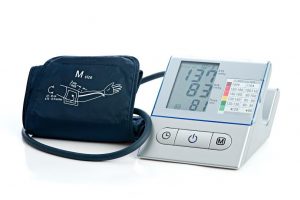
Phosphate-rich foods can raise blood pressure and even promote heart disease. The culprit is really the growth hormone found in the foods called fibroblast growth factor 23 or FGF23 for short. The findings come from a study by researchers at Vetmeduni Vienna and published in the journal EMBO Molecular Medicine in May.
Frequently used in the processed food industry as a preservative, phosphates can be bad for your heart. Whenever you take in large amounts of phosphates, you increase the levels of the FGF23 hormone, which is formed in your bones and controls the excretion of excess phosphate through your kidneys. Calcium and sodium then accumulate in your body, and that can wreak havoc on your cardiovascular system, researchers say.
In many patients with kidney disease, for example, both phosphate levels and the levels of FGF23 are chronically high. Reinhold Erben, who heads up Vetmeduni Vienna’s physiology, pathophysiology, and biophysics department, says, “Our phosphate consumption is relevant for our entire state of health.”
Today, more than 500 million people around the world live with chronic kidney disease. Clinical studies have shown that these patients often develop high blood pressure and heart disease.
What increases your risk of high blood pressure?
Often without any symptoms or warning signs, high blood pressure is ominously known as the “silent killer.” An estimated one in three adults in the United States has high blood pressure, according to the Centers for Disease Control and Prevention (CDC). Also referred to as hypertension, high blood pressure happens when the walls of arteries experience significant force as blood flows through them. It also increases the risk of getting heart disease or having a stroke.
The Mayo Clinic lists several factors and conditions that contribute to the development of high blood pressure – smoking, obesity, low physical activity, too much salt, high alcohol consumption, stress, and age, just to name a few. African Americans, women who take birth control pills, and pregnant women are at an even higher risk.
Steps to lower blood pressure naturally
Researchers emphasize that high blood pressure and heart disease should be monitored and treated early and aggressively, especially in women. The good news is, you don’t have to wait.
There are steps you can take right away to lower the risk of elevated blood pressure and heart disease.
For starters, watch your lifestyle. Eat a healthy diet, keep your body active, maintain a healthy weight, refrain from smoking, and limit your alcohol consumption. While you’re at it, watch out for those phosphate-rich foods, too.
Foods that can help you lower your blood pressure include low-fat dairy, flaxseed, dark chocolate, olive oil, beets, pistachios, pomegranate, fatty fish, whole grains, hibiscus, garlic, cashews and almonds, kale, tumeric, and green tea. Incorporating these foods into your diet can help you achieve healthy blood pressure readings and reduce your risk of complications associated with high blood pressure.